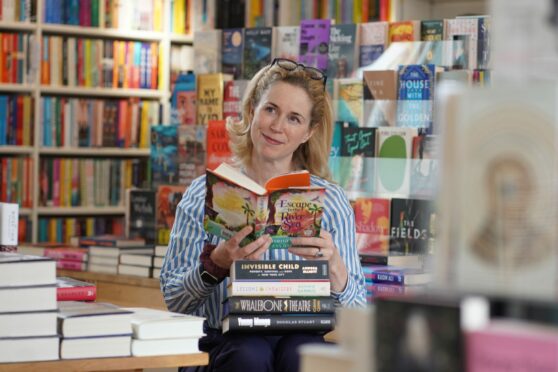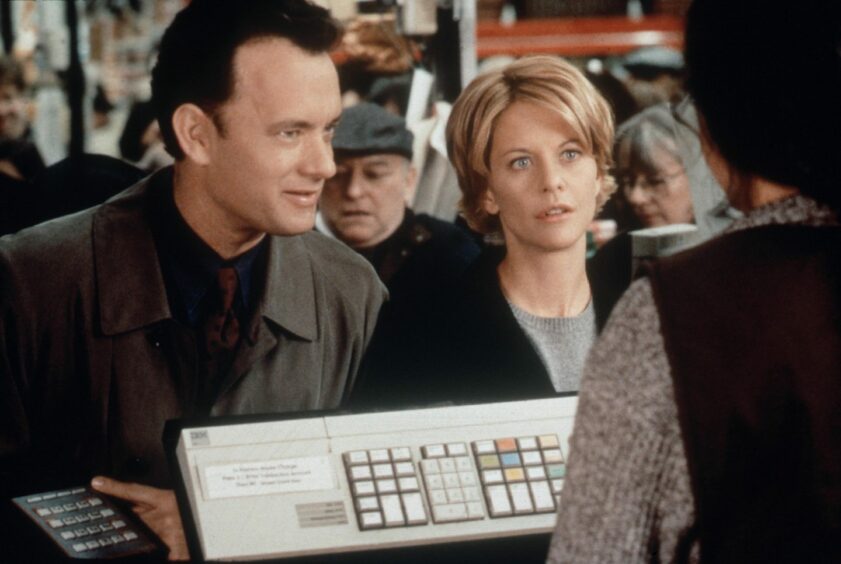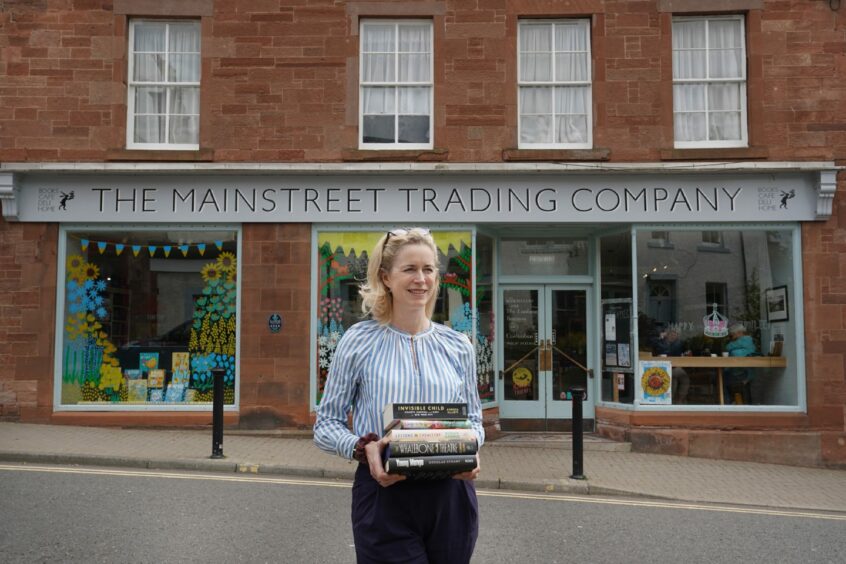
A gateway from our high streets to new worlds, beloved local bookshops have transported the imaginations of generations of readers and, despite the crushing competition from online giants, the number of real shops with real books on real shelves continues to climb.
After more than two decades of decline, the number of independent bookshops in the UK and Ireland has grown for the fifth year in a row, with more than 160 new businesses opened since 2016. There are now more than 1,000 independent and non-traditional booksellers registered with the Booksellers Association trade body, as of the start of the year, including more than 100 in Scotland alone. While a renewed focus on spending money locally has developed with consumers since the pandemic, Emma Bradshaw, head of campaigns at the Booksellers Association, believes living through lockdowns has also encouraged more aspiring bookshop owners to fulfil their dream of opening their very own space.
“Although Covid has been damaging to so many things and for so many reasons, one of the positives to be taken from it is that people have got that renewed value for community and local business,” she told The Sunday Post as Independent Bookshop Week prepares to get under way on Saturday.
“Being able to go into a shop and recognise a face and or even know the bookseller’s name is so important for that local connection, and the value that customers place on independent bookshops has increased. That renewed interest has contributed to numbers going up, but I have a suspicion that a lot of us were reassessing life choices during Covid, too. There’s a lot of people who have always wanted to have a bookshop and the pandemic has been the thing to nudge them in that direction.
“Whether it was a case of just deciding that now is the time to take that risk – if not now, when – some people have also lost their jobs or been furloughed, and it’s been about seizing that moment and deciding to have a bit of a career change. In some cases, people who’ve been booksellers for other businesses have decided to go out on their own, too.”
Although the high street is still facing difficult trading conditions – not to mention the cost of living crisis, which Bradshaw admits is a growing concern not just for consumers, but business owners, too – the pandemic has forced many small shop owners to be more creative with their offerings, including holding more online events and diversifying with things like book subscriptions.
The local bookshop – like the paper and print book – has defied the persistent warnings of extinction as the big chains boomed and we increasingly lives our lives online but 24 years, after Meg Ryan’s pucky bookshop owner took on Tom Hanks’ big-footing chain, the small operators are still refusing to buckle.
The launch of bookshop.org, an alternative to Amazon that allows readers to buy books online while supporting local independent sellers, has proven successful for many offline stores. Just four months after opening in November 2020, the “socially conscious way to buy books” generated £1 million in profit for independent bookshops in the UK.
Bradshaw continued: “The pandemic has made a lot of independent bookshops, who maybe didn’t have any sort of online or social presence at all, consider branching into that space. During Covid, a lot of events went online, and many stores are keeping that offering going for people who perhaps have access issues. Doing both things well – in store events, as well as online – has been great.
“Plus, we’re also seeing our members look at things like subscription services and gift boxes, bringing in that personal curation and selecting titles that booksellers themselves are really passionate about. That is so much part of the bookshop experience, isn’t it? Being able to talk to people who are equally enthusiastic and even more knowledgeable about books, and getting a personal recommendation. That’s something you don’t necessarily get with an online shopping experience, for example.”
Author Neil Gaiman famously said “a town isn’t a town without a bookstore” and a recent report found bookshops are the businesses leading the way in creating successful high streets. The Booksellers as Placemakers study, commissioned by the Booksellers Association, found more than 90% of bookshop owners are working actively to support their local economy, contributing to non-retail offerings, such as events and festivals, as well as local beautification projects.
For Bradshaw, the findings are proof of the fact that bookshops work not just as retail spaces, but vital community hubs for bookworms of all ages. She said: “Bookshops are at the heart of their community. It’s often the independent booksellers who are galvanising the rest of the businesses in their area to work together to ensure their high street is thriving, and a lot of them are doing so much to give back to their communities. Whether it’s charity, investment in local economy and generating jobs, they are giving back to the people.”
Running from June 18 to 25, the annual IBW celebrations will see bookshops around the country hold events including signings, author readings, podcast recordings, bookshop crawls, and engagement sessions for children, something which book publishers say is vital for both the reader and the author.
Jan Rutherford from independent Scottish publisher, Birlinn, said: “Bricks-and-mortar bookshops are incredibly important to us as an independent publisher. We build relationships with booksellers over many years and work together on events and local and/or national promotions for authors.
“We have been delighted to see the growth of strong independents in Scotland and beyond in recent years and will do all we can to support them – and the relationship works both ways. They provide their communities with a book hub like no other and suggest to publishers gaps in the market. Their online expansion through Covid, and the very personal nature of looking after local readers, has been impressive. Bookshops of all shapes and sizes, but in particular the indies, are very much a key part of the team.”
Bradshaw added: “Everything that goes on during independent bookshop week is happening in independent book shops up and down the country throughout the year. So, this week’s event are very much about shining a spotlight on what these bookshops do year round, and taking the time to celebrate that.
“After so many years of decline, it’s just amazing, very encouraging and very pleasing to see more bookshops opening – and, fingers crossed, we hope the numbers keep going up. We’re regularly getting queries about new members joining us and, actually, a lot of existing members are also expanding or moving to larger premises. We shouldn’t be complacent and think it’s all good news, but for the bigger picture, it’s very encouraging.”
Bookselling had to wake up and be much more dynamic. Happily, it has
When Rosamund de la Hey set out to open a bookshop in the small town of St Boswells, near Melrose, she admits not everyone thought it was a good idea.
“A bookshop in the middle of nowhere – everyone was like, ‘Are you nuts?’”, she explained with a laugh. “But if you build it, they will come.”
And they have. In the 14 years since The Mainstreet Trading Company opened its doors, customers have come from far and wide to browse the new hardbacks and classic paperbacks lining the shop’s shelves, and although it has been tough at times, de la Hey says there’s nothing more rewarding than helping a customer find their next good read.
She said: “I used to work in publishing, selling to the likes of Waterstones and WH Smiths, and one of the reasons why I left was because it had become much more about ‘marking spend’ than the actual content of the books. When I first started doing the job, I knew I could make a material difference to a book’s success, and that was becoming less and less the case. I really missed that.
“The ultimate satisfaction of selling a book is showing it to the reader, an individual, who will read it then come back to the shop and say, ‘Oh, I liked that one, what should I read next?’
“It’s the most fun and so fascinating to see how people respond to different books.”
She added: “The thing I take as the biggest compliment from any customer is when they say, ‘I see things here that I don’t see in another shop or I can’t find online’. That’s what you want in a bookshop. It’s serendipity. It’s sharing ideas.”
As well as a wide selection of books, The Mainstreet Trading Company also boasts a café, deli and homewares section, and de la Hey says offering events, both in person and online, has helped turn their shop into a community space for readers of all ages. “We’re in the middle of nowhere, so there’s a hardcore of people who come locally, but a lot travel a distance, too,” explained the bookseller, who won Independent Bookshop of the Year in 2012.
“The local ones really appreciate that we can bring authors to somewhere unexpected, and they feel almost touchingly proud of that. That’s incredibly rewarding from our point of view.
“We have been doing the online events for the last year or so, and although it was better than not having an opportunity to engage with authors at all, it was nothing like the same as live events. We’ve been doing live events again recently, and the audience engagement has been so striking – if anything it’s stronger because people appreciate that it’s back.
“We only do events where we’ve got time to really build the audience for that particular book and author, and it does make it rewarding for both sides.”
Scotland, de la Hey believes, has a thriving independent industry, spearheaded by innovative booksellers, like herself, who are passionate about sharing their love of everything from sci-fi to poetry. She said: “The new generation of booksellers is taking a whole different approach – bookselling had to wake up and become more dynamic, and it definitely has. In the last few years, it feels like it’s come into its own, with a hugely diverse range of new indies.
“There’s an amazing number of new bookshops in Edinburgh, for example, and what’s so wonderful is that they’ve all carved out a different niche, whether it’s geographic or cultural. The same is true of a couple of indies in Glasgow. Scotland’s a good example of innovation in bookselling. It’s just incredibly exciting that bookshops, statistically, are on the rise now.”

Enjoy the convenience of having The Sunday Post delivered as a digital ePaper straight to your smartphone, tablet or computer.
Subscribe for only £5.49 a month and enjoy all the benefits of the printed paper as a digital replica.
Subscribe
